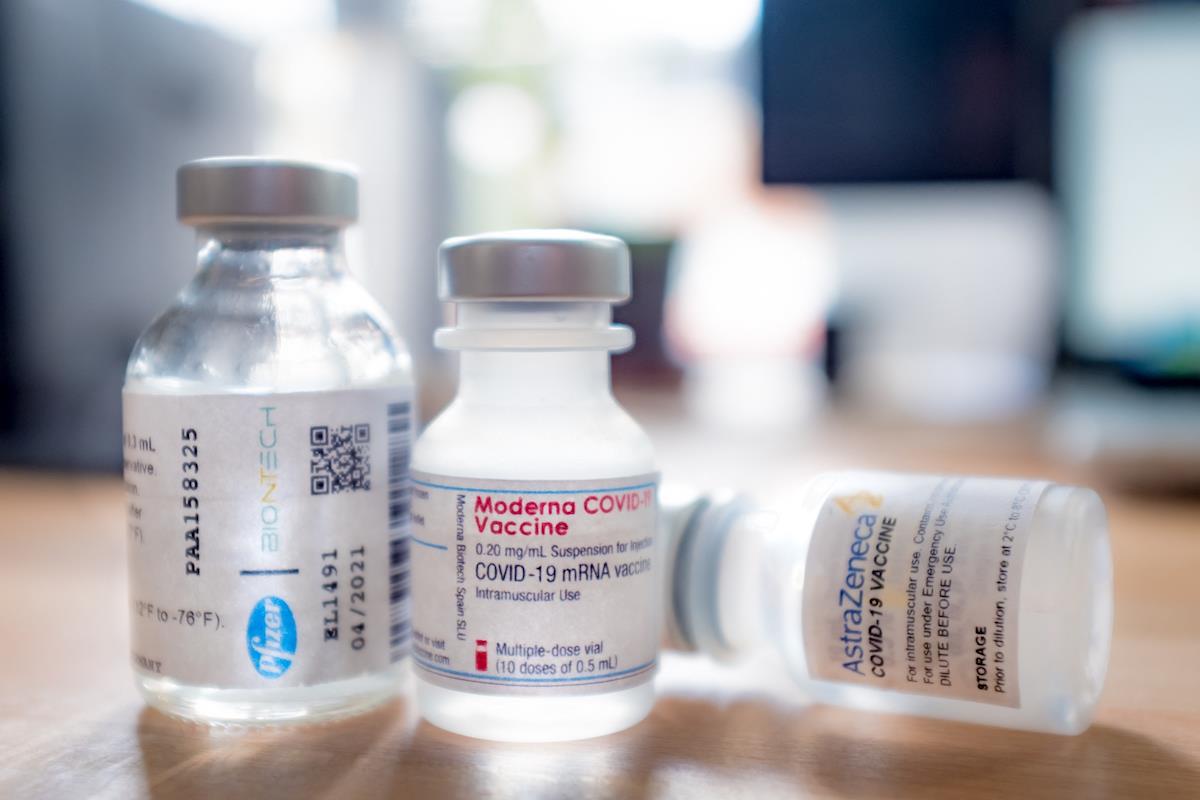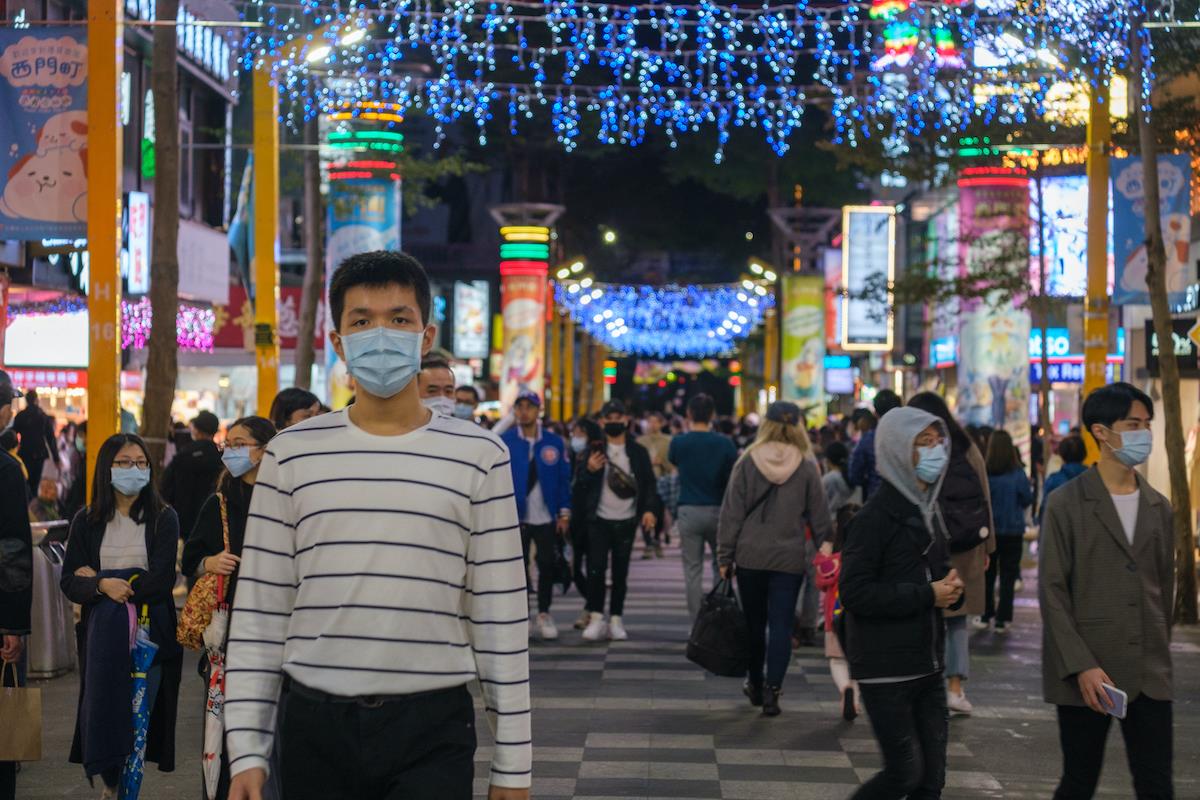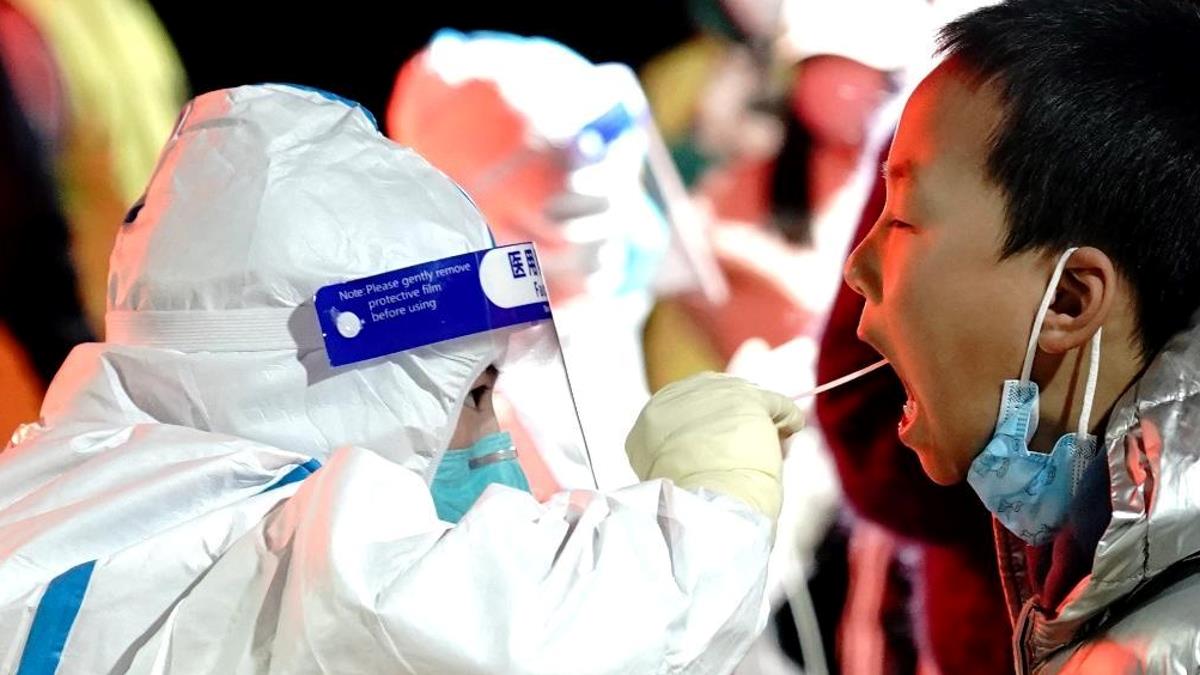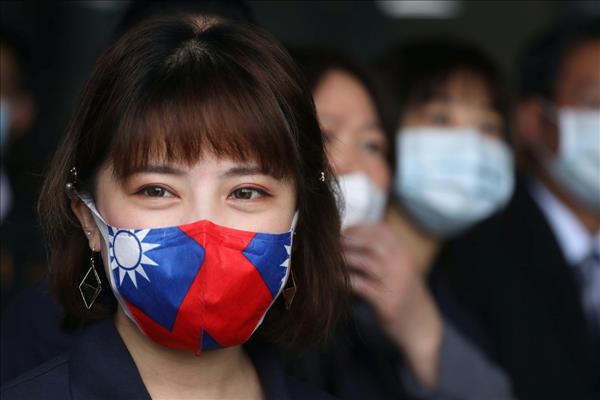
Taiwan Separates From China By Living With The Virus
Taiwan is weighing whether to relax its anti-epidemic rules and adopt a living with the virus strategy in order to reopen to international travelers as soon as next month.
The self-governing island has recorded more than 120,000 local infections over the past week due to the highly contagious Omicron variant. But while the number of infections continues to grow, the government has said it would shorten the quarantine period for incoming travelers from 10 to seven days from May 9.
Since the pandemic first erupted in mainland China in early 2020, Taiwan has managed to keep its infections at a relatively low level with strict social distancing and quarantine rules.
In May last year, Taiwan experienced an epidemic wave caused by the Alpha variant, resulting in 500-700 positive cases per day at its peak. At that time, its vaccination rate was at about 1% due to a shortage of vaccines. Between May and August, more than 800 people died.
Since then, however, Taiwan has managed to keep the number of Covid-19 cases in single digits per day, while promoting its vaccination campaigns. As of Tuesday, 84.98% of the island's 24 million people had received a first vaccine dose, while 80.23% had received a second dose.
Most were administered either the AstraZeneca, Moderna or BioNTech vaccines, while about 5% chose the Taiwan-made Medigen vaccine.
This week, the percentage of Taiwanese people who received a booster shot exceeded 60%. The ratio is expected to increase to 70% by the end of this month.

Western vaccines as well as a locally-made version have worked well in Taiwan. Photo: AFP / David Himbert / Hans Lucas
Since mid-April, however, the number of Covid-19 cases in Taiwan has been growing. The Taiwan Centers for Disease Control said a total of 28,420 local infections were recorded on Wednesday, compared with 23,102 cases on Tuesday. At the same time, it announced a shortening of the amount of time incoming travelers must spend in quarantine from 10 to seven days, starting from May 9.
It also fine-tuned its patient triage system by allowing patients aged below 69 with zero or mild symptoms to be isolated at home, instead of at hospitals or quarantine centers. Authorities said such a move was aimed at saving their medical resources for serious patients.
Taiwan premier Su Tseng-chang said on Tuesday that Taiwan would not follow mainland China's strategy of locking down cities to break the transmission chain. Su said as 99.7% of patients in the current epidemic wave had no or only mild symptoms, the government would relax its anti-epidemic rules step by step.
However, he added that Taiwan should not rush to live with the virus as some places were forced to do so only after their medical systems collapsed amid viral outbreaks.
Taiwanese Minister of Health Chen Shih-chung told the media on Tuesday that the government was planning to relax its Covid rules. Chen said if there were not many serious patients and the vaccination rate for booster shots reached 70%, quarantine-free travel would be resumed in June.
Chen Chien-jen, an epidemiologist and a former vice-president, said in a Facebook post on April 28 that Taiwanese people should not be over-worried by the current epidemic wave.
Chen said it was misleading to use foreign fatality rates to predict Taiwan's death toll. He said the fatality rates per seven days on average in Hong Kong and the United States had reached 2% in late February and eased to 1.1% recently, compared with 0.05-0.2% in France and Israel and 0.1% in South Korea and mainland China.
He said Taiwan's fatality rate was 0.03%, which he suggested was probably the lowest in the world.

Taiwan had managed until recently to keep case levels low. Photo: AFP /Walid Berrazeg / Anadolu Agency
That hasn't been the case in nearby Hong Kong, where a total of 1.19 million people, or 15% of its population, were infected in the fifth epidemic wave during the first fourth months of this year. In mid-February, the city was ordered by Beijing to strictly implement a“zero-Covid” policy but the sudden change of strategy resulted in a near collapse of its medical system.
In mid-March, Beijing allowed Hong Kong to shift policy to living with the virus. More than 9,000 Covid patients died in two months.
David Hui, a professor of respiratory medicine at the Chinese University of Hong Kong and an adviser on the government's coronavirus strategy, said the epidemic situation in Hong Kong was stable as cases did not rebound last month even after some social distancing restrictions were relaxed.
“After we had a serious Covid outbreak here, it's difficult for the virus to disappear. Many people without symptoms are carrying and transmitting the virus in the community,” said Hui.“It's become endemic and will continue to exist in our community.”
Ho Pak-leung, a microbiologist from the University of Hong Kong, said it was time to relax Hong Kong's social distancing rules. He said the city was lagging behind other places in terms of bringing life back to normal.
He added that a lot of places had already dropped quarantine and testing arrangements for travelers.
At present, countries that have resumed quarantine-free travel for vaccinated people include the United States, European Union (EU) members, the Philippines, Vietnam, Malaysia, Australia, Japan, South Korea, Thailand and Singapore.

A boy undergoes a PCR test in Shanghai on March 13, 2022. Photo: Xinhua
In contrast, mainland China still maintains tough quarantine rules for travelers amid ongoing big city lockdowns. On Wednesday, Beijing reported 46 local cases and announced the shutdown of underground train stations and highways.
Joerg Wuttke, president of the EU Chamber of Commerce in China, said in an interview with Swiss newspaper Neue Zurich (NZZ) on April 28 that he expected China would stick to its zero-Covid policy until the 20th Party Congress in November.
He said the Chinese government had spent a year bad-mouthing the West's mRNA vaccines while promoting its own less effective jabs and thus could not admit that it should now choose to live with the virus.
Read: China struggling to win back lost investor confidence
Follow Jeff Pao on Twitter at @jeffpao3

Legal Disclaimer:
MENAFN provides the
information “as is” without warranty of any kind. We do not accept
any responsibility or liability for the accuracy, content, images,
videos, licenses, completeness, legality, or reliability of the information
contained in this article. If you have any complaints or copyright
issues related to this article, kindly contact the provider above.


















Comments
No comment